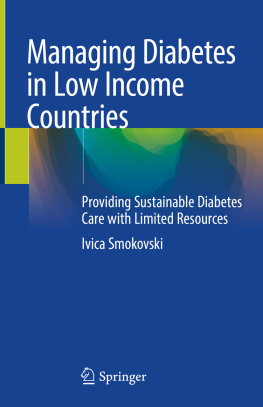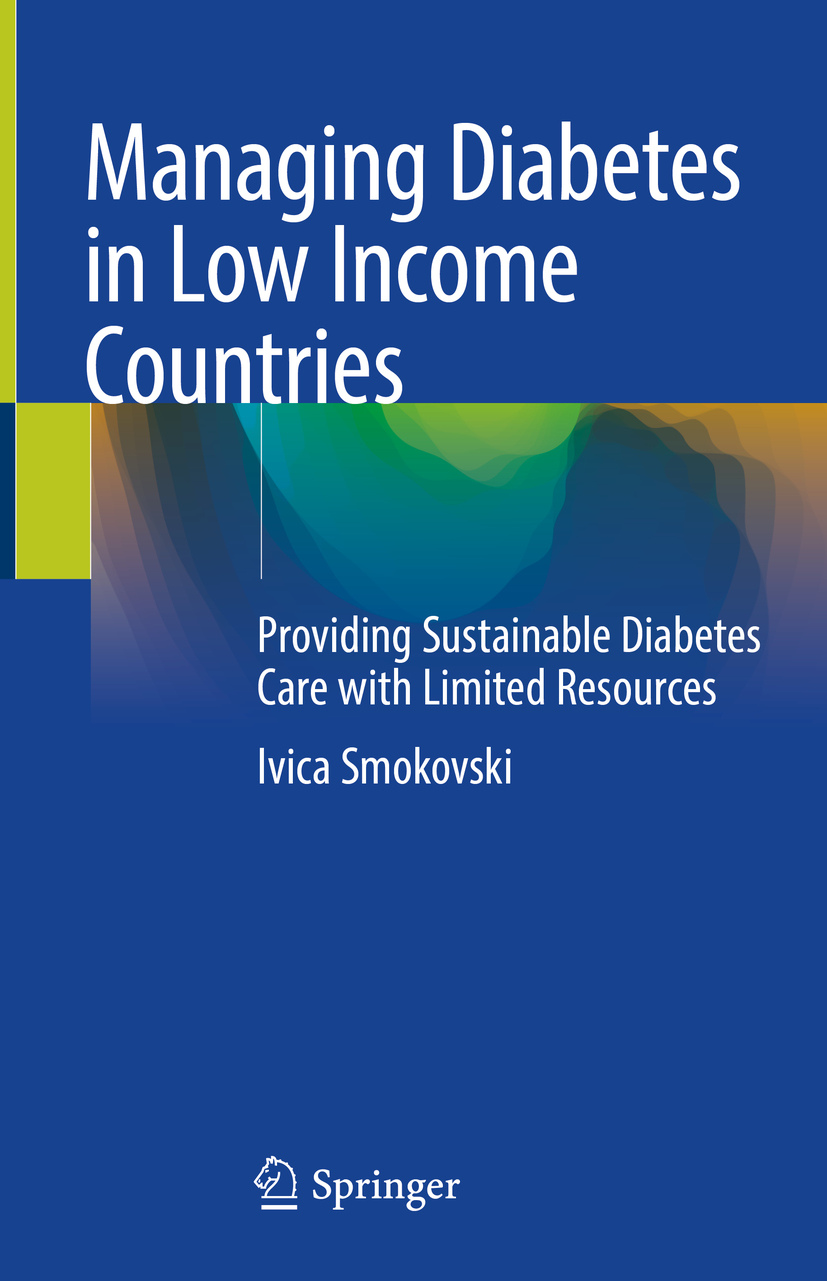Ivica Smokovski
Faculty of Medical Sciences, University Goce Delcev, Shtip, North Macedonia
University Clinic of Endocrinology, Diabetes and Metabolic Disorders, Skopje, North Macedonia
ISBN 978-3-030-51468-6 e-ISBN 978-3-030-51469-3
https://doi.org/10.1007/978-3-030-51469-3
Springer Nature Switzerland AG 2021
This work is subject to copyright. All rights are reserved by the Publisher, whether the whole or part of the material is concerned, specifically the rights of translation, reprinting, reuse of illustrations, recitation, broadcasting, reproduction on microfilms or in any other physical way, and transmission or information storage and retrieval, electronic adaptation, computer software, or by similar or dissimilar methodology now known or hereafter developed.
The use of general descriptive names, registered names, trademarks, service marks, etc. in this publication does not imply, even in the absence of a specific statement, that such names are exempt from the relevant protective laws and regulations and therefore free for general use.
The publisher, the authors and the editors are safe to assume that the advice and information in this book are believed to be true and accurate at the date of publication. Neither the publisher nor the authors or the editors give a warranty, expressed or implied, with respect to the material contained herein or for any errors or omissions that may have been made. The publisher remains neutral with regard to jurisdictional claims in published maps and institutional affiliations.
This Springer imprint is published by the registered company Springer Nature Switzerland AG
The registered company address is: Gewerbestrasse 11, 6330 Cham, Switzerland
Preface
We are already feeling the first impact of diabetes tsunami, and it is quite obvious that the coming waves are only going to get bigger. It is felt in the most developed countries and healthcare systems, and even they have a challenge managing the burden of diabetes, its complications, and the pressure on resources. But the impact is felt much stronger in the developing countries that already have difficulties in coping with the current healthcare issues and are definitely not prepared for the huge diabetes shock waves that are coming. And it is in developing countries where almost 80% of the people with diabetes are living, which only makes the problem even more complex.
The title of the book is Managing Diabetes in Low-Income CountriesProviding Sustainable Diabetes Care with Limited Resources. However, the term low-income countries, as used in the title and throughout the book, goes beyond the standard World Bank criteria of categorizing the countries. Please note while reading this book that low-income countries refer to the lower resource, developing countries, including both middle-income and low-income countries as defined by various authorities.
The book consists of nine chapters including the burden of diabetes prevalence, diabetes drivers, diabetes complications, available treatments, monitoring of metabolic control, diabetes education, e-Health solutions, nutrition, and diabetes prevention. The nine chapters illustrate the situation in developing compared to developed countries and propose initiatives for managing various diabetes challenges in a setting with limited resources.
Since this book is written in the middle of one of the greatest infectious pandemics humanity has ever faced, it is quite impressive to witness the immediate response to contain, diagnose, and treat COVID-19. It is spreading enormously fast, claiming lots of lives. It seems that humanity is at its best when dealing with imminent, global, fast-spreading danger. People have no problems changing their lifestyle they have had for years, in order to protect themselves, their family, beloved ones, and the whole humanity.
However, when we have to deal with another pandemic developing more insidiously over years, such as diabetes, we are reluctant to do even the slightest modification of our lifestyle. This results in a sad situation where diabetes is taking its massive toll.
There are countries in Europe, considered one of the most developed regions in the world, which are low-resource, developing, and with a very high diabetes prevalence. Those countries are struggling to balance between providing optimal diabetes care and not driving their healthcare systems into bankruptcy.
An example of a developing European country with limited resources is the Republic of North Macedonia, my home country that is mentioned on several occasions throughout the book. I have been honored to serve as a Medical Advisor for Diabetes Care to the Minister of Health in the period 20122016, and member of the National Diabetes Committee 20152017, so the examples presented in this book are my personal experiences and involvements.
Many aspects presented in this book and referring to developing countries could be equally relevant to the parts of population with diabetes living in developed countries. On the other hand, a minor part of diabetes population in developing countries has access to the highest level of diabetes care. The inequality in access to diabetes care within both developed and developing countries makes such categorization of countries largely vague.
Despite the title, this book truly seeks to present the challenges and potential solutions under circumstances with limited resources that could be found in both developed and developing countries.
It seems that after the global lockdown COVID-19 has caused, the struggle for providing sustainable diabetes care would become relevant not only for the developing but also for the countries that are currently considered as developed. The world would be different and there would certainly be more issues contesting for the limited healthcare resources.
It has been proven that even in a low-resource setting a lot could be done to fight diabetes and its complications. I would be feeling very fulfilled if this book has inspired you to take even a single initiative for curbing one of the biggest pandemics modern humanity has ever faced, diabetes.
And before you start reading, I would like to express immense gratitude to my family and my mentors, friends, and great endocrinologists, Prof Nanette Steinle and Prof Andrew Behnke without whom this book would not have been possible.
Ivica Smokovski
Skopje, Republic of North Macedonia
April 2020













